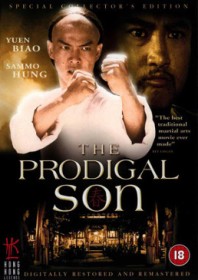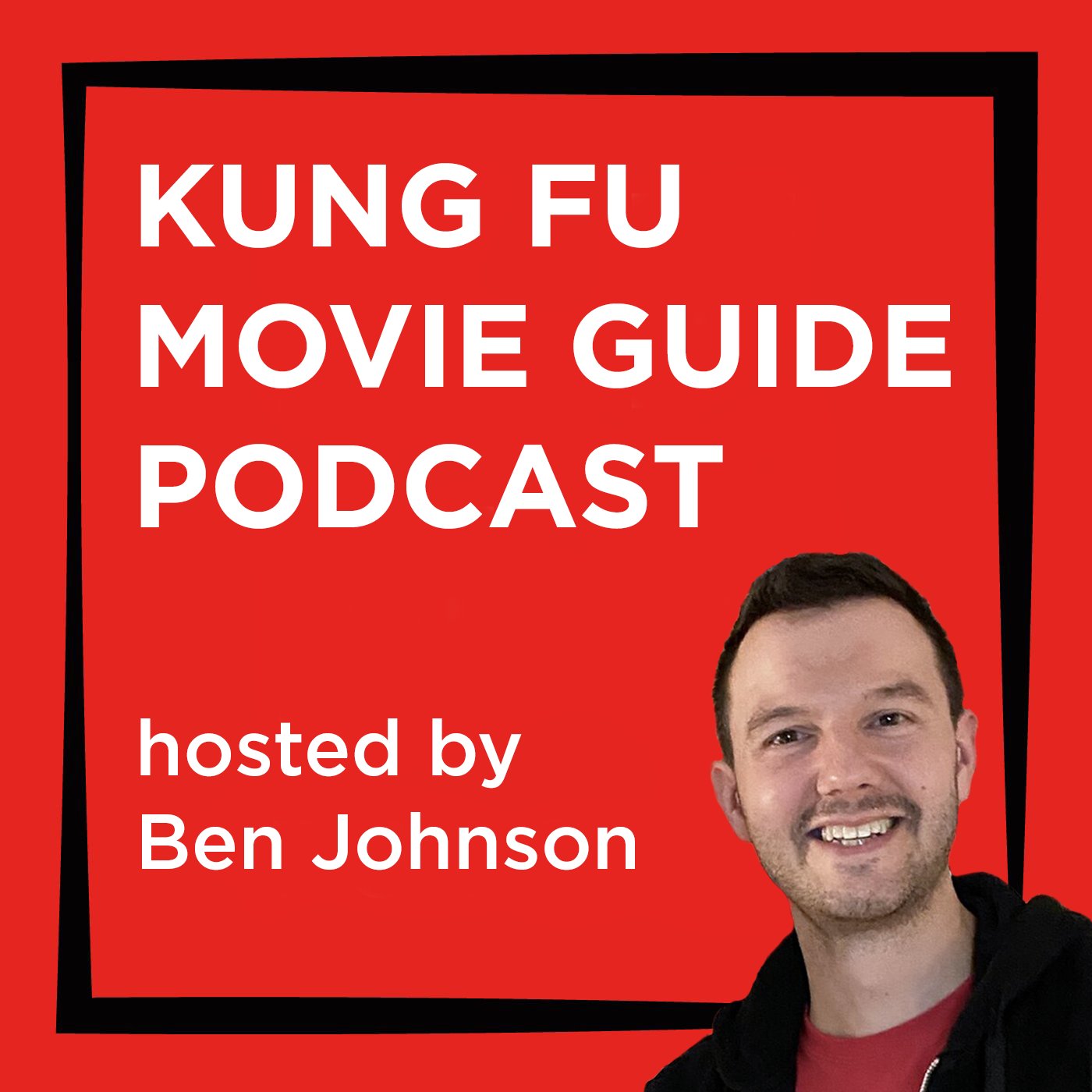
A rip-roaring classic of a kung fu movie, this is undoubtedly one of the greatest martial arts films ever made and arguably Sammo’s crowning achievement.
By the time this mature fight fest landed in 1981, Sammo‘s uneven trait of mixing sincerity with absurdity was a distant memory, even if it would take Sammo a while to entirely grow out of his penchant for slapstick extremities. The semi-autobiographical story recalls a boyhood spent behind the scenes and on the stage as part of a travelling Beijing Opera group. Alongside a cast featuring his former Opera friends and performers, the film feels both heartfelt and strongly authentic.
Everyone plays to the top of their game, particularly during the sizzling fight sequences which display Sammo’s intricate mastery of motion, honed from a breadth of martial knowledge and filming experience. Few kung fu films have managed to top The Prodigal Son in its innovative choreography, with particular attention paid to editing, timing, camera movement, narrative structure and fluidity.
As Sammo’s second Wing Chun film, this acts as an indirect prequel to Hung’s earlier Warriors Two, detailing the early years of martial maestro Leung Jan, here depicted as a spoilt youth played excellently by Yuen Biao. Believing himself to be the kung fu king of Foshan, Leung’s fights are being fixed by his parents who fear for the boy’s safety. It takes a single beating from Wing Chun master and Opera performer Leung Yee-tai (Lam Ching-ying) before the truth comes out.
Despite persistent calls for Yee-tai to become Leung Jan’s sifu, he only reluctantly decides to teach the boy when his entire Opera group are killed and their building torched following a destructive order from the Duke, if only for the benefit of adding a revenge angle to the story.
Sammo appears as the burly Wong Wai-bo, brother of Yee-tai, secluded in a country hideout suffering delusions of grandeur. Frankie Chan plays the warm-hearted villain, but he is only a villain by proxy. He is a privileged, oppositional construct of Leung Jan’s character, possessing the kindest of intentions and only indirectly linked to the Opera murders. The balance of power between Lam Ching-ying’s authority and Yuen Biao’s youthful naivety adds to most of the film’s splendour, with both actors delivering career defining performances. Particularly Lam Ching-ying, even if he does spend large sections of the film singing in drag.
The movie concludes in a bloodbath, with Yuen Biao grappling prodigal rival Frankie Chan toe to toe in an astonishing final reel which never fails to amaze.
AKA: Pull No Punches
- Country: Hong Kong
- Action Director: Sammo Hung Kam-bo
- Directed by: Sammo Hung Kam-bo
- Starring: Chien Yuet-san, Chung Fat, Dick Wei, Frankie Chan Fan-kei, Lam Ching-ying, Lee Hoi-san, Peter Chan Lung, Sammo Hung Kam-bo, Wu Ma, Yuen Biao
- Produced by: Raymond Chow Man-wai
- Written by: Barry Wong Ping-yiu
- Studio: Golden Harvest












